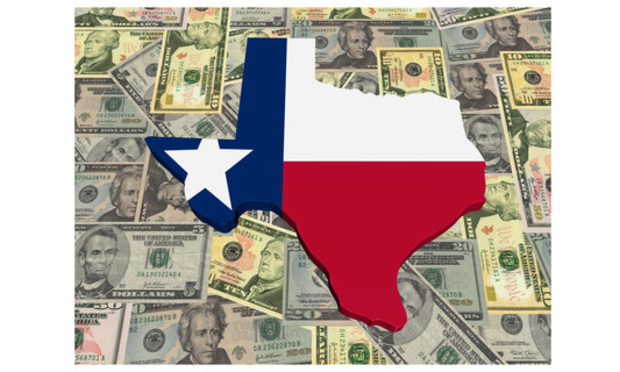Dallas Partners Earn More than Houston Partners, Survey Finds
Average total compensation for Dallas partners grew by 55 percent in 2018 compared with 2016, while Houston partners saw their total compensation drop.
December 07, 2018 at 12:05 PM
4 minute read

Law firm partners in Dallas saw their compensation jump 55 percent in 2018 compared with 2016, while compensation for partners in Houston dropped by 14 percent during the same period, according to a new survey by Major, Lindsey & Africa.
In Dallas, partners' average compensation totaled $1.128 million in 2018, compared with $727,000 two years before. In Houston, partners' total compensation averaged $914,000 in 2018, compared with $1.062 million in 2016 according to Major Lindsey's 2018 Partner Compensation Survey. The last time the recruiting firm conducted the pay survey was in 2016.
The survey found that average total compensation by city ranged from a high of $1.448 million in New York to a low of $593,000 in Minneapolis for the 13 cities plus Silicon Valley broken out in the survey.
Jeffrey Lowe, global practice leader for Major Lindsey's law firm practice, said Dallas compensation rose so much over the two years because so many big firms moved into Dallas.
“There's been some huge heavy hitters who entered the market the last couple years and there's been a tremendous amount of competition in that market,” Lowe said. “It's not unlike what we saw in 2016 when firms started to get back into Houston.”
The Texas legal market, and Dallas in particular, has been changing at a frenzied pace this year as some big Texas firms merged, a number of out-of-state firms opened Texas offices, and many lawyers around the state made lateral moves.
Originations, which tend to track compensation trends, were up 67 percent in Dallas in 2018 compared with 2016, but declined by 20 percent in Houston during the same period, according to the survey.
For the 2018 survey, Major Lindsey gathered responses from 1,390 partners in the United States working at Am Law 200, NLJ 350 or Global 100 firms. Major Lindsey conducted the survey with legal market intelligence and research specialists Acritas.
Partners in Dallas were more satisfied with their compensation than lawyers in Houston. In Dallas, 76 percent of lawyers were satisfied to some degree with their compensation, compared with only 66 percent of partners in Houston.
Dallas partners were also more satisfied with their life when compensation was considered a factor. A total of 83 percent of partners in Dallas were satisfied on some level, while only 73 were satisfied in Houston.
When compensation was not considered as a factor in life satisfaction, 89 percent of Dallas partners said they were satisfied, while in Houston, the number was only 69 percent.
Lowe said that typically, the higher the compensation, the higher the level of satisfaction, which may explain why satisfaction levels are higher in Dallas.
“Attorneys are pretty happy being attorneys, and money is part of it,” he said.
The gender pay disparity was a key finding in the fifth biennial survey, which found that male partners are earning $959,000, on average, at large U.S. firms, compared with $627,000 on average for female partners. This means male partners are earning 53 percent more than female partners.
Of the partners who responded to the survey, 28 percent said they believe a gender pay gap exists within their firm. But 67 percent of female partners and only 11 percent of male partners believe there is a gender pay gap.
Lowe said those results should be a wake-up call for firms.
“Looking at the whole industry, everybody has some thinking to do,” he said.
Further Reading:
New Survey Finds Even Bigger Gender Gap in Big Law Partner Pay
What's So Hot About Texas? For Law Firms, Apparently Everything
This content has been archived. It is available through our partners, LexisNexis® and Bloomberg Law.
To view this content, please continue to their sites.
Not a Lexis Subscriber?
Subscribe Now
Not a Bloomberg Law Subscriber?
Subscribe Now
NOT FOR REPRINT
© 2025 ALM Global, LLC, All Rights Reserved. Request academic re-use from www.copyright.com. All other uses, submit a request to [email protected]. For more information visit Asset & Logo Licensing.
You Might Like
View All
O'Melveny, White & Case, Skadden Beef Up in Texas With Energy, Real Estate Lateral Partner Hires
5 minute read
Chamberlain Hrdlicka Taps a New Leader as Firm Follows Succession Planning Path
3 minute read
Law Firms Are 'Struggling' With Partner Pay Segmentation, as Top Rainmakers Bring In More Revenue
5 minute read
Trending Stories
- 1Considerations for Establishing or Denying a Texas Partnership to Invest in Real Estate
- 2In-House AI Adoption Stalls Despite Rising Business Pressures
- 3Texas Asks Trump DOJ to Reject Housing Enforcement
- 4Ideas We Should Borrow: A Legislative Wishlist for NJ Trusts and Estates
- 5Canadian Private Equity Firms Are Eyeing Tech Sector
Who Got The Work
J. Brugh Lower of Gibbons has entered an appearance for industrial equipment supplier Devco Corporation in a pending trademark infringement lawsuit. The suit, accusing the defendant of selling knock-off Graco products, was filed Dec. 18 in New Jersey District Court by Rivkin Radler on behalf of Graco Inc. and Graco Minnesota. The case, assigned to U.S. District Judge Zahid N. Quraishi, is 3:24-cv-11294, Graco Inc. et al v. Devco Corporation.
Who Got The Work
Rebecca Maller-Stein and Kent A. Yalowitz of Arnold & Porter Kaye Scholer have entered their appearances for Hanaco Venture Capital and its executives, Lior Prosor and David Frankel, in a pending securities lawsuit. The action, filed on Dec. 24 in New York Southern District Court by Zell, Aron & Co. on behalf of Goldeneye Advisors, accuses the defendants of negligently and fraudulently managing the plaintiff's $1 million investment. The case, assigned to U.S. District Judge Vernon S. Broderick, is 1:24-cv-09918, Goldeneye Advisors, LLC v. Hanaco Venture Capital, Ltd. et al.
Who Got The Work
Attorneys from A&O Shearman has stepped in as defense counsel for Toronto-Dominion Bank and other defendants in a pending securities class action. The suit, filed Dec. 11 in New York Southern District Court by Bleichmar Fonti & Auld, accuses the defendants of concealing the bank's 'pervasive' deficiencies in regards to its compliance with the Bank Secrecy Act and the quality of its anti-money laundering controls. The case, assigned to U.S. District Judge Arun Subramanian, is 1:24-cv-09445, Gonzalez v. The Toronto-Dominion Bank et al.
Who Got The Work
Crown Castle International, a Pennsylvania company providing shared communications infrastructure, has turned to Luke D. Wolf of Gordon Rees Scully Mansukhani to fend off a pending breach-of-contract lawsuit. The court action, filed Nov. 25 in Michigan Eastern District Court by Hooper Hathaway PC on behalf of The Town Residences LLC, accuses Crown Castle of failing to transfer approximately $30,000 in utility payments from T-Mobile in breach of a roof-top lease and assignment agreement. The case, assigned to U.S. District Judge Susan K. Declercq, is 2:24-cv-13131, The Town Residences LLC v. T-Mobile US, Inc. et al.
Who Got The Work
Wilfred P. Coronato and Daniel M. Schwartz of McCarter & English have stepped in as defense counsel to Electrolux Home Products Inc. in a pending product liability lawsuit. The court action, filed Nov. 26 in New York Eastern District Court by Poulos Lopiccolo PC and Nagel Rice LLP on behalf of David Stern, alleges that the defendant's refrigerators’ drawers and shelving repeatedly break and fall apart within months after purchase. The case, assigned to U.S. District Judge Joan M. Azrack, is 2:24-cv-08204, Stern v. Electrolux Home Products, Inc.
Featured Firms
Law Offices of Gary Martin Hays & Associates, P.C.
(470) 294-1674
Law Offices of Mark E. Salomone
(857) 444-6468
Smith & Hassler
(713) 739-1250






